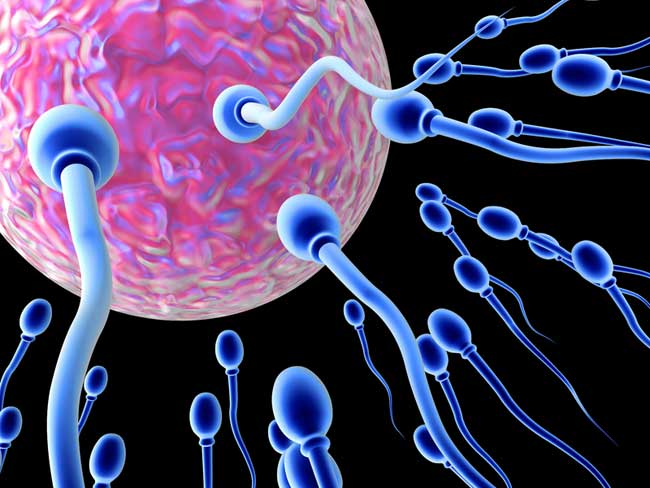Key to Male Infertility Found

How much of a certain immune system protein a man’s semen contains could determine whether or not he can have children, a new study suggests.
The finding, detailed in the latest issue of the journal Molecular Medicine, could lead to fertility tests for males or new types of male contraception, the researchers say.
Researchers at the Feinstein Institute for Medical Research in New York have isolated a substance called macrophage migration inhibitory factor (MIF) in semen samples collected from 68 infertile and 27 reproductively healthy men.
The samples were collected from men three to five days after a period of sexual abstinence and analyzed by scientists who had no idea which group of men the samples belonged to.
The researchers found that the infertile men had MIF levels that were either too high or too low. Those who had no problems conceiving had levels that were just right.
Identified more than 40 years ago, MIF plays an important role in the immune system by promoting inflammation. It is secreted by cells in the male testis and is found in seminal fluid.
Past studies have found it plays a key role in sperm maturation. But MIF has also been linked to several autoimmune and inflammatory diseases, such as diabetes and sepsis, which is a systematic inflammatory response to infection. Unusually high levels of MIF have also been found in individuals suffering from rheumatoid arthritis.
Get the world’s most fascinating discoveries delivered straight to your inbox.
About 15 percent of couples attempting to get pregnant for the first time experience problems conceiving. About 40 percent of infertility problems are due to disorders in the male.
Al-Abed and his team are currently working to figure out what accessory proteins MIF is collaborating with. “MIF on its own is not toxic,” Al-Abed said.
- Couples Prefer Embryo Donation vs. Destruction
- Scientists Plan to Craft Embryo from Two Women
- Longest Known Sperm Create Paradox of Nature



